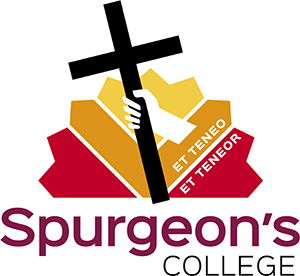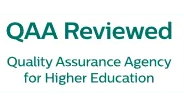Subject to validation
Course introduction
This course is specifically designed for ministerial candidates who come to the process of formation and recognition with prior experience and/or theological study.
The aim is to equip students with the necessary skills and reflective ability to function with integrity and competence as recognised Christian ministers within a denominational structure. The programme is mapped to the Baptist Union of Great Britain’s Marks of Ministry Competencies for ministerial recognition but open to students from other denominations as well.
Programme Duration
Part time taught course or part time distance learning (DL) course over 3 years.
Mode of study
For those studying on campus in London, they follow a traditional pattern of attendance at college for seminars once a week and attendance at five residential weekends for ministerial formation.
For those studying by distance learning, lectures are held on zoom on Friday afternoons in term time via live zoom lectures and attendance at five residential weekends for ministerial formation.
Throughout their studies students will attend the weekly postgraduate research seminar (online).
Entry Requirements
There are two pathways:
Pathway 1: For those with a higher education qualification in theology
The standard entry requirements are:
A degree in Theology or Religious Studies with at least second-class honours of 55% from an approved institution; OR
A degree in any subject with at least second-class honours of 55% and an additional qualification from an approved institution at level 4 (Certificate HE) or above, with marks at merit or higher, in Theology or Religious Studies.
Pathway 2: For those without a higher education qualification in theology
The standard entry requirements are:
A degree in any discipline with at least second-class honours of 55% or above from an approved institution; AND
Successful completion of an entry assessment. (further details below).
Both pathways
Applicants who do not meet the standard entry qualifications, or who do not have a higher education qualification in theology, will be assessed by the submission of a written assignment set by the College (typically a 3000-word essay), evidence of relevant experience, and an interview. The assignment will be marked according to typical criteria for graduate level work, by a member of the College academic staff. Taken together with other evidence and interview, the College will determine whether the applicant has the necessary academic potential for postgraduate study of theology, i.e. competency in theological knowledge, understanding and critical thinking skills.
–
The possible outcomes of any assessment and/or interview mentioned above are:
- Accepted onto the Master’s programme.
- Accepted onto the Postgraduate Certificate programme, (successful completion of which will allow progression onto the Master’s programme)
- Accepted onto the Master’s programme but will be required to audit a specified number of units at undergraduate level.
- Accepted onto the Postgraduate Certificate programme but will be required to audit a specified number of units at undergraduate level.
- Deemed unsuitable.
Interview
All applicants must attend an interview and demonstrate that they meet ministerial admissions criteria.
Placement
This programme requires the students to have a placement either in a church, chaplaincy or missional setting. The placement can be your own local setting where you are already ministering or the college can support you to find a different kind of experience. There are two types of placements: a long placement – 3 day week; or a short placement – 8 hours a week. Further details can be found in the Placement Guide.
In your placement setting you will be supported by a Supervisor/Mentor as well as a Field Placement Tutor. You will be required to attend a monthly pastoral group which will be led by a member of staff. They will arrange a Personal and Spiritual Development interview at the start of each academic year as well as your annual review. Supervisors and students also submit reports at the end of each year which form part of the monitoring process for their practical training. A yearly report will also be required from your placement setting.
Draft Programme Structure
Both Pathways
- Essential Skills for Ministry and Mission
- Intermediate Skills for Ministry and Mission
- Advanced Skills for Ministry and Mission
Pathway 1
- Biblical Hermeneutics
- Optional Unit
- Denominational Studies
Pathway 2
- Biblical Hermeneutics
- Introduction to Christian Theology
- Denominational Studies
Intensives
The Skills for Ministry and Mission units are taught over 5 intensive weekends (Saturday and Sunday) per academic year on campus in London. The Saturday runs from 9.30am – 5.30pm; Sunday 9.30 – 4.30pm.
Exit qualifications
- Postgraduate Certificate: Students who complete 60 taught units on the programme
- Postgraduate Diploma: Students who complete 120 credits on the programme Master of Theology: awarded on completion of the whole programme (180 credits)
How much does it cost?
The cost of the course is £3000 per year for 3 years – total cost of £9000
A deposit of £300 is payable when accepting an offer.
This course once validated (either on campus or by online learning) will be registered with Student Finance England. If you are eligible you can get a masters loan to pay your fees. To find out more, please click here.
Additional Costs
There will be additional costs for food and accommodation at the intensive weekends.
How to apply
You can apply by completing an online application form using the link below.
Questions:
Please contact the admissions department for more information
Email: admissions@spurgeons.ac.uk
Tel: 07425 716696
For further details about his course see the programme specification



